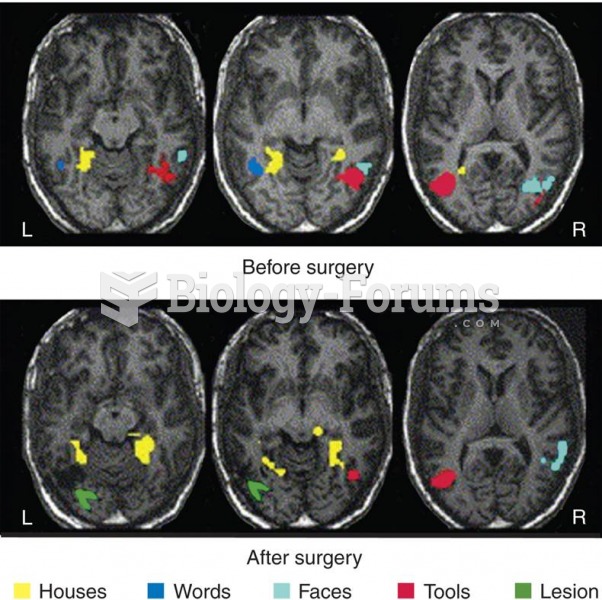|
|
|
In the United States, congenital cytomegalovirus causes one child to become disabled almost every hour. CMV is the leading preventable viral cause of development disability in newborns. These disabilities include hearing or vision loss, and cerebral palsy.
Aspirin is the most widely used drug in the world. It has even been recognized as such by the Guinness Book of World Records.
The most common treatment options for addiction include psychotherapy, support groups, and individual counseling.
Atropine was named after the Greek goddess Atropos, the oldest and ugliest of the three sisters known as the Fates, who controlled the destiny of men.
On average, someone in the United States has a stroke about every 40 seconds. This is about 795,000 people per year.







